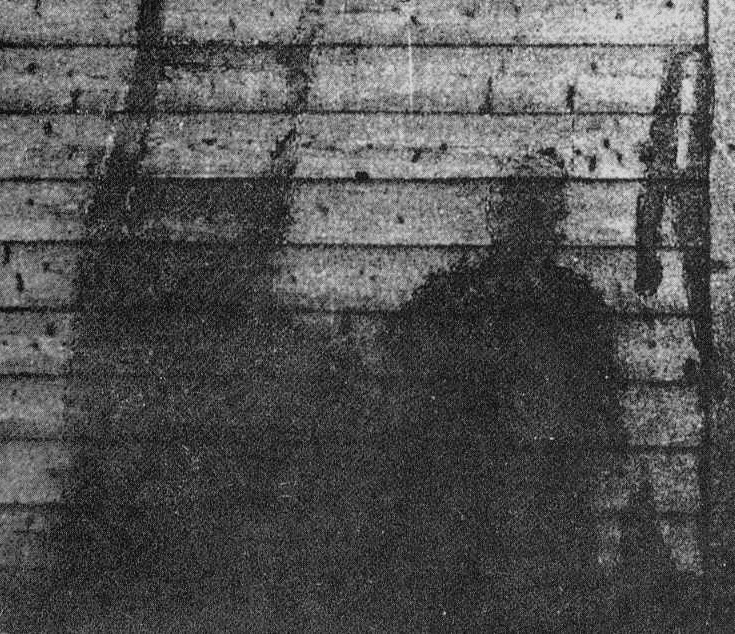Quatermass
Member
- Apr 14, 2009
- 69
- 11
- 6
The Japanese valiant attack on slumbering Pearl Harbour will go down in history as a bold and brave military manoeuvre, with virtually no civilian losses, and certainly more killed as a result of U.S. 'friendly fire'.
The American sneak dropping of Atomic bombs on hundreds of thousands of civilians on the other hand will go down in history as one of the most cowardly endeavours known to Man. A chapter which adequately characterises the modern American nation, and its political leadership.
Unable to face the Japanese in conventional direct warfare. Instead turning on the Japanese soldier's women and children at home, behind the war lines. Vaporising hundreds of thousands of innocents as they make their way to school and as they journey out, shopping.
Continuing the theme, still active and precipitated by Yukon: http://www.usmessageboard.com/military/75083-the-greatest-war-crime.html I again raise the spectre of the Terroristic countenance modern American Imperialism represents (See also: http://www.usmessageboard.com/the-m...ions-of-afghanistan-and-iraq.html#post1156878 ) in order to determine the views of those torchbearers of ethical rectitude that frequent U.S.Messageboard's religious pages.

Ace Japanese fighter/bomber pilots skilfully engage military targets in the daringly orchestrated attack on Pearl Harbour.
The following is an excerpt from: "Hiroshima was no longer a city"
By Mikki Smith ( full article: ISR issue 13 | "Hiroshima was no longer a city" )On August 6, 1945, a single uranium bomb, nicknamed "Little Boy," was dropped on the city of Hiroshima. Three days later--and despite the likelihood of an immediate surrender by Japan--a plutonium bomb, "Fat Man," was dropped on the city of Nagasaki. Now the whole world--in particular, Russia, the other main contender for postwar dominance--could see the devastating power of these new kinds of weapons. The United States had demonstrated beyond the shadow of a doubt that it would not hesitate to annihilate countless civilian men, women, and children in order to accomplish its aims. The U.S. hoped that such "atomic diplomacy" would secure its position as world superpower in the postwar period.
"The greatest thing in history"
As President Harry S. Truman ate lunch on the Augusta, returning home from his meeting at Potsdam with British Prime Minister Winston S. Churchill and USSR Premier Joseph Stalin, he was given the news of the bombing of Hiroshima. Elated, he told the group of sailors around him, "This is the greatest thing in history."(2) The cause for his celebration was the incineration of Hiroshima's infrastructure and tens of thousands of its inhabitants.
Note.
2. Quoted in Richard Rhodes, The Making of the Atomic Bomb (New York: Simon & Schuster, 1986), p. 734.

Infanticide victim 4 year old Shinichi Tetsutani's partially melted tricycle remains a poignant icon for the illegal and amoral, unbridled barbarity of U.S. Imperialist aggression.
The American sneak dropping of Atomic bombs on hundreds of thousands of civilians on the other hand will go down in history as one of the most cowardly endeavours known to Man. A chapter which adequately characterises the modern American nation, and its political leadership.
Unable to face the Japanese in conventional direct warfare. Instead turning on the Japanese soldier's women and children at home, behind the war lines. Vaporising hundreds of thousands of innocents as they make their way to school and as they journey out, shopping.
Continuing the theme, still active and precipitated by Yukon: http://www.usmessageboard.com/military/75083-the-greatest-war-crime.html I again raise the spectre of the Terroristic countenance modern American Imperialism represents (See also: http://www.usmessageboard.com/the-m...ions-of-afghanistan-and-iraq.html#post1156878 ) in order to determine the views of those torchbearers of ethical rectitude that frequent U.S.Messageboard's religious pages.

Ace Japanese fighter/bomber pilots skilfully engage military targets in the daringly orchestrated attack on Pearl Harbour.
The following is an excerpt from: "Hiroshima was no longer a city"
By Mikki Smith ( full article: ISR issue 13 | "Hiroshima was no longer a city" )On August 6, 1945, a single uranium bomb, nicknamed "Little Boy," was dropped on the city of Hiroshima. Three days later--and despite the likelihood of an immediate surrender by Japan--a plutonium bomb, "Fat Man," was dropped on the city of Nagasaki. Now the whole world--in particular, Russia, the other main contender for postwar dominance--could see the devastating power of these new kinds of weapons. The United States had demonstrated beyond the shadow of a doubt that it would not hesitate to annihilate countless civilian men, women, and children in order to accomplish its aims. The U.S. hoped that such "atomic diplomacy" would secure its position as world superpower in the postwar period.
"The greatest thing in history"
As President Harry S. Truman ate lunch on the Augusta, returning home from his meeting at Potsdam with British Prime Minister Winston S. Churchill and USSR Premier Joseph Stalin, he was given the news of the bombing of Hiroshima. Elated, he told the group of sailors around him, "This is the greatest thing in history."(2) The cause for his celebration was the incineration of Hiroshima's infrastructure and tens of thousands of its inhabitants.
Note.
2. Quoted in Richard Rhodes, The Making of the Atomic Bomb (New York: Simon & Schuster, 1986), p. 734.

Infanticide victim 4 year old Shinichi Tetsutani's partially melted tricycle remains a poignant icon for the illegal and amoral, unbridled barbarity of U.S. Imperialist aggression.
Last edited:



